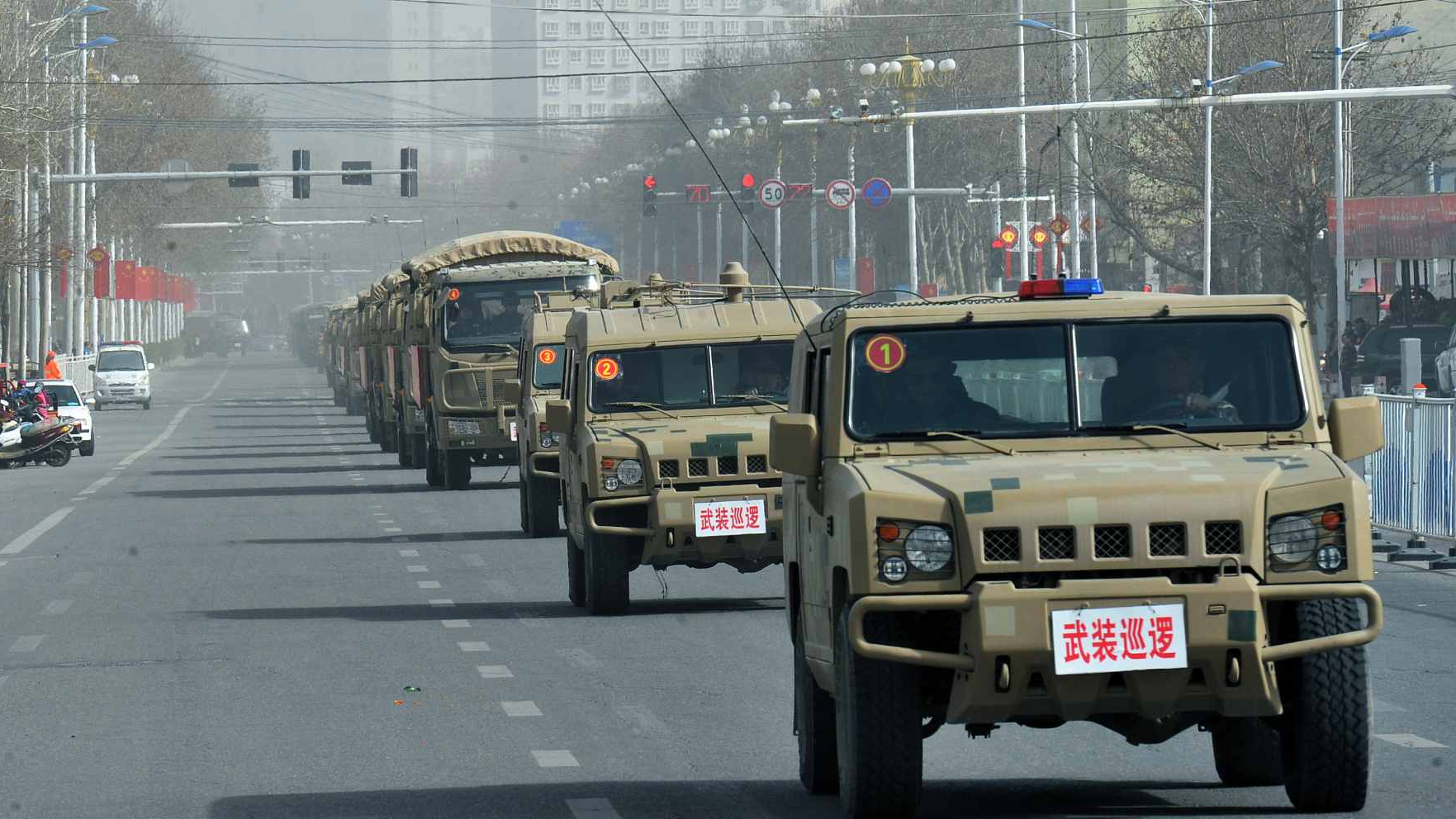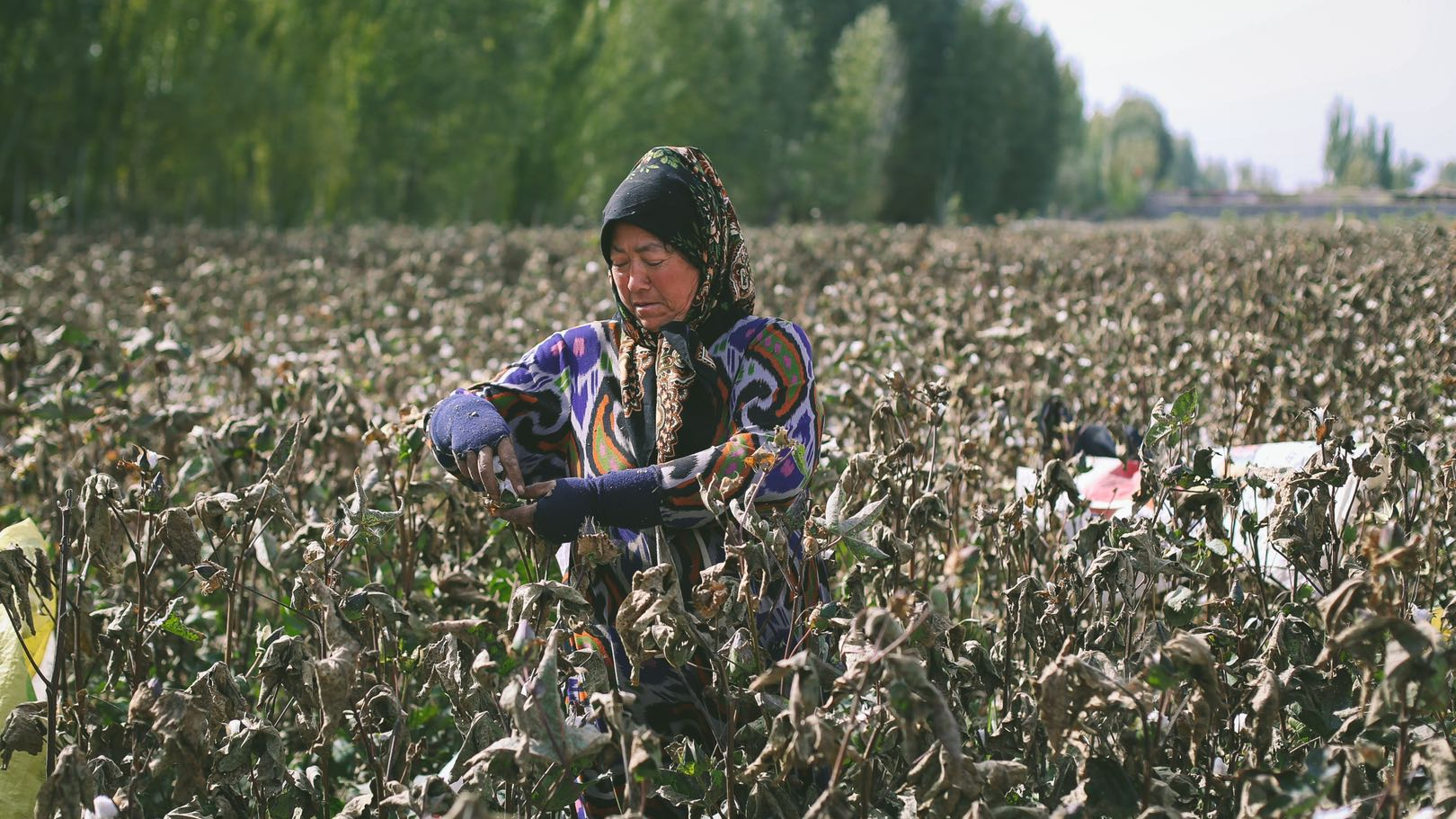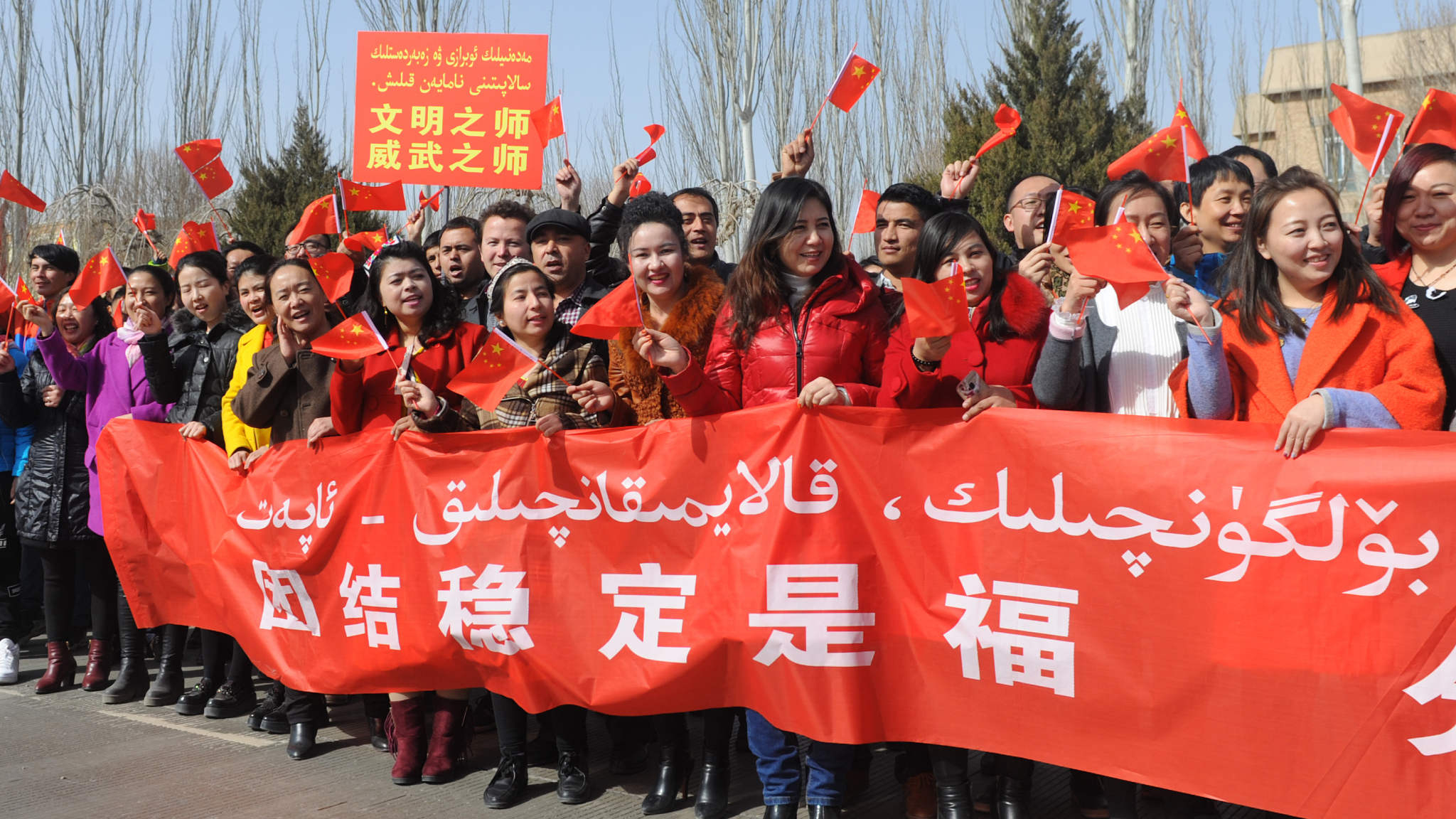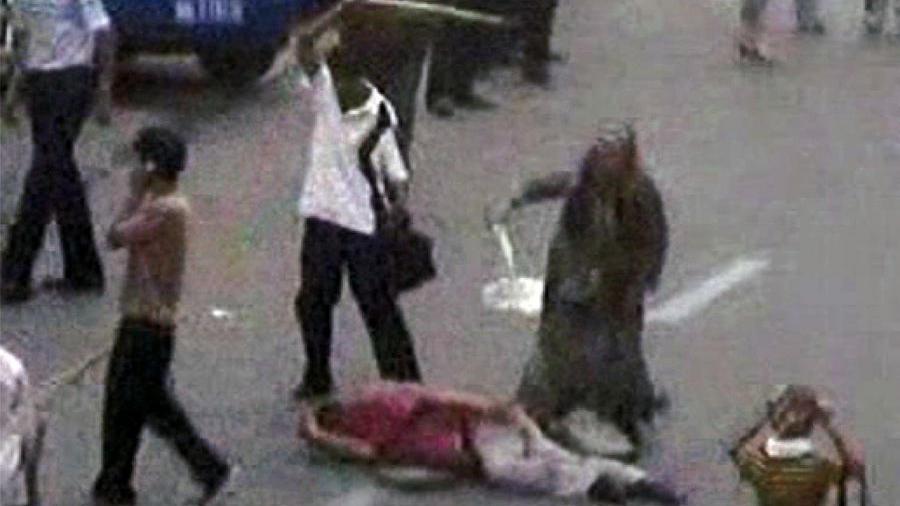- Home
- China
- World
- Asia-Pacific
- Americas
- Europe
- Middle-East and Africa
- Politics
- Business
- Opinions
- Tech & Sci
- Culture
- Sports
- Travel
- Nature
- Picture
- Video
- Live
- TV
- Specials
- Learn Chinese


Xinjiang law enforcement forces vowed to fight terrorism in a mass gathering in Hotan, Xinjiang, on February 27, 2017. /VCG
Over the past decades, the Xinjiang Uygur Autonomous Region in northwestern China has been the front line in the country's fight against terrorism.
From 1990 to 2016, thousands of terrorist attacks struck Xinjiang, killing a large number of civilians and hundreds of police officers, according to a white paper on the fight against terrorism in Xinjiang released by China's State Council Information Office in March 2019.
China's government identified three root causes behind the region's instability, which it calls the "three evil forces" – violent terrorism, ethnic separatism and religious extremism.
To combat the growing threat these factors pose, China has taken a two-pronged approach that focused on cracking down on terrorist activities, as well as improving people's understanding of religious extremism.
The latter is mainly achieved through the establishment of vocational education and training centers where radicalized individuals who committed minor offenses were required to complete courses on Mandarin and law and were equipped with vocational and social skills.

Ayshemham picks cotton in a village in Awat, Aksu Prefecture, Xinjiang, China, October 20, 2017. /Parhat Yusanjan
"The reason why China set up vocational education and training centers to provide skills training and help people get employed is because those who didn't have a stable job tended to be the most vulnerable when they came across extremist ideologies," said Wang Jiang, a researcher with the Institute of Border Studies at Zhejiang Normal University.
These measures, combined with the government's poverty alleviation campaign, have successfully curbed the spread of extremism and brought down the number of terrorist attacks to zero in the past four years. China's methods, while successful in bringing back peace and dramatically improving Xinjiang people's livelihood, have been regularly criticized by the West as being "authoritarian and repressive."
Undermining China's international credibility
In his last day in office as U.S. State Secretary, Mike Pompeo declared that China had committed "genocide" and "crimes against humanity" against Uygurs and other ethnic minorities living in Xinjiang, despite offering no credible evidence to support the claim. His successor Antony Blinken, who has expressed a wish to cooperate with China on issues such as climate change, has maintained the "genocide" determination.
Other unfounded claims about Xinjiang are also continuously cited in Washington's official statements, such as that "China has detained over one million Uygurs" or that "detainees of the vocational education and training centers are subjected to torture and political indoctrination."
Experts have pointed out that as the U.S. is increasingly taking a confrontational stance on China's rise, American politicians have morphed Xinjiang into a political bargaining chip to "get Beijing in line" and preserve the American hegemony.
"To make an issue out of Xinjiang, the West not only can create internal chaos inside China but also damage the country's relationship with the Muslim world. It really kills two birds with one stone," said Jia Chunyang, an associate research fellow at the China Institute of Contemporary International Relations, who focuses on American studies.

People in Xinjiang hold a banner that reads, "Unity and stability spells good fortune." /Xinhua
Through cherry-picking and fabrication, mainstream Western media have also provided a constant stream of fertilizer that has enriched the "China doing bad things in Xinjiang" line, according to the experts.
Zhou Weiping, a Xinjiang researcher at the Chinese Academy of Social Sciences who accompanied news outlets like the BBC on reporting trips, said that the Western press often photograph things that only fit their narrative and produce stories that cause confusion and outrage.
"The BBC, for example, was given full access to factories they wanted to visit in Xinjiang. Given such an opportunity, they only went around the perimeter and photographed the barbed wires without even bothering to check out what's going on inside," Zhou said.
"As a result, the Western audience generally have developed a negative impression (about Xinjiang and China)."

A woman works at a factory in the city of Kashgar, northwest China's Xinjiang Uygur Autonomous Region. /Xinhua
Creating internal chaos
On the afternoon of July 5, 2009, hundreds of rioters began to gather at a busy market area in Xinjiang's capital Urumqi and began attacking police officers, setting patrol vehicles on fire.
Hordes of rioters chased down passersby and beat them until they were covered in blood. One driver was forcefully pulled out of his car by a mob and beaten with sticks and clubs until his lifeless body was left on the side of the street.
The incident marked the beginning of a three-day-long mass rampage that saw stores looted, restaurants burned and people brutally murdered in broad daylight. The 2009 Urumqi riots, which killed at least 197 and injured more than 1,700, became one of the deadliest episodes in terrorism in Xinjiang.
Following an investigation, China's security officials discovered the riots had been premeditated, with weapons, which included firearms, prepared beforehand. Many of the rioters were from outside Urumqi and had arrived in the city just one day before the incident.
They also discovered the event had been masterminded by the World Uyghur Congress via the internet, where it called on supporters "to be braver" and "to do something big." As independent news website The Grayzone has reported, the organization, along with a network of "Uygur human rights" groups, are largely funded by the U.S. State Department's regime-change arms, such as the National Endowment for Democracy.

On July 5, 2009, thousands of rioters launched attacks on civilians, government institutions, police stations, residential buildings, shops and the public transportation system. The riot caused the death of 197 people, leaving more than 1,700 people injured. A total of 331 shops and 1,325 vehicles, as well as many public facilities, were damaged or destroyed. /Xinhua
"Well, the CIA would want to destabilize China, and that would be the best way to do it – to form an unrest and join with those Uygurs in pushing the Han Chinese in Beijing from internal places rather than external," retired U.S. Army Colonel Lawrence Wilkerson, who served as chief of staff to former U.S. Secretary of State Colin Powell, said during a talk at the The Ron Paul Institute for Peace and Prosperity in 2018.
Jia said East and West have different understandings of the concept of human rights. China prioritizes the improvement of people's livelihood over other things, while Western countries emphasize ambiguous intellectual concepts such as "freedom."
"When it comes to human rights, the U.S. and its Western allies have always touted themselves as a beacon for the world," he said.
"More often than not, the West has used human rights as a political tool to intervene in other countries' internal affairs when it suits their interests, rather than truly caring about local people's living conditions. What they are trying to figure out is whether they can create chaos in Tibet, Xinjiang, and Hong Kong."

Search Trends
Copyright © 2020 CGTN. Beijing ICP prepared NO.16065310-3
Copyright © 2020 CGTN. Beijing ICP prepared NO.16065310-3
Copyright © 2020 CGTN. Beijing ICP prepared NO.16065310-3